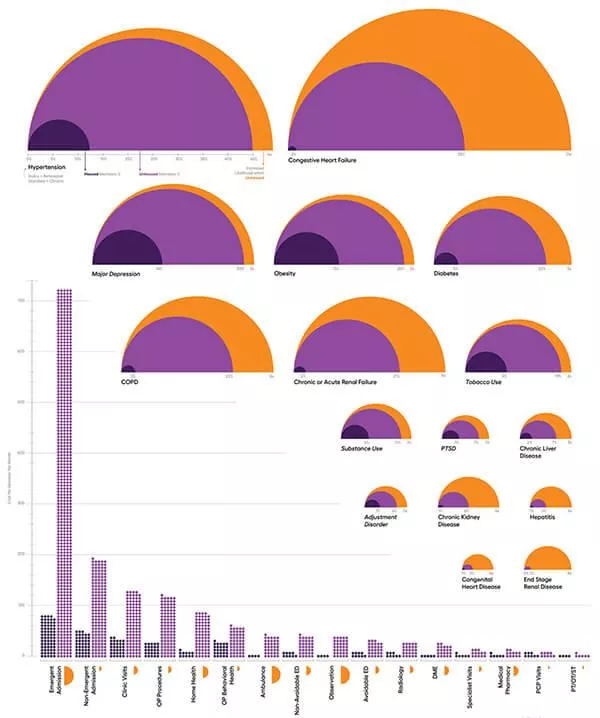Housing insecurity and health — more than a social problem
It’s true: people who are housing insecure are often dealing with serious medical and behavioral health conditions. This graphic makes it clear that unhoused populations experience not only a significantly higher prevalence of chronic illness, but also an increase in costs of care.

Jacob Hochberg on housing insecurity and health
There’s a handwritten sign that keeps popping up near my house. It says, “Purchase Diabetes Test Strips.” It got me thinking. There’s likely an underground market for these test strips. If someone receives these through their insurance for free and they can’t afford rent, they could probably sell them — and likely would sell them.
I started to ask myself: does housing insecurity lead to poor health, or is chronic illness a cause of housing insecurity? It’s probably a combination. There are some people, for example, who may be bankrupted by their medical conditions and become homeless. They’re so sick, they can’t work. Because they can’t work, they can’t access good health insurance or afford healthcare.
On the flipside, lack of housing creates poor living conditions. These conditions could cause or aggravate chronic illness. Exposure to the elements, poor hygiene, lack of access to healthcare services, and self-medication through drugs and alcohol. All factors at play in an individual’s health.
The graphic above makes one thing clear: housing insecurity is a problem healthcare needs to tackle. Unhoused populations experience not only a significantly higher prevalence of chronic illness, but also an increase in costs of care. It’s a huge burden on individuals, the healthcare system, and society at large. It’s worth investing in solutions.
It’s going to take coordination between housing and healthcare. Solving one without the other is unlikely to work. Data can make that happen.
—Jacob Hochberg, Executive Director, Customer Insights
News you can use: Let’s put data to work to solve emerging challenges in healthcare
- 21.3M households risk a forced move. It’s not just the homeless who are housing insecure. Moving 3 or more times in 1 year is associated with negative health outcomes. [HEALTH.GOV]
- 19M households put >50% of income toward housing. These households also experience increased use of acute care services, postponement of needed care, and lack of a regular site for preventive care. [JABFM.ORG]
- 35% of unhoused patients experience congestive heart failure. Urban Health Today talks with Arcadian Jacob Hochberg about the link between housing insecurity and chronic illness. [DOCWIRE NEWS]
- Transgender individuals are 1.94x more likely to be housing insecure. This study from the National Library of Medicine shares quotes from respondents that humanize the issue. [NIH.GOV]
From Arcadia: Our latest insights into social determinants of health
- The SDoH Dashboard in Arcadia Analytics identifies actionable members in a population with social and environmental concerns, aiming to improve outcomes and achieve health equity. Analyze utilization, spending, demographics, zip codes, condition prevalence, and language concerns.
- Every month, we get a pulse on the most important topics in healthcare and data. This month we discussed SDoH and health equity with Umpqua Health. Check out Vitals to hear about new episodes and watch recordings on-demand.
Sign up: Subscribe for more snackable insights
Every month we share new perspectives into how data drives innovation in healthcare. Subscribe for more content like this.
